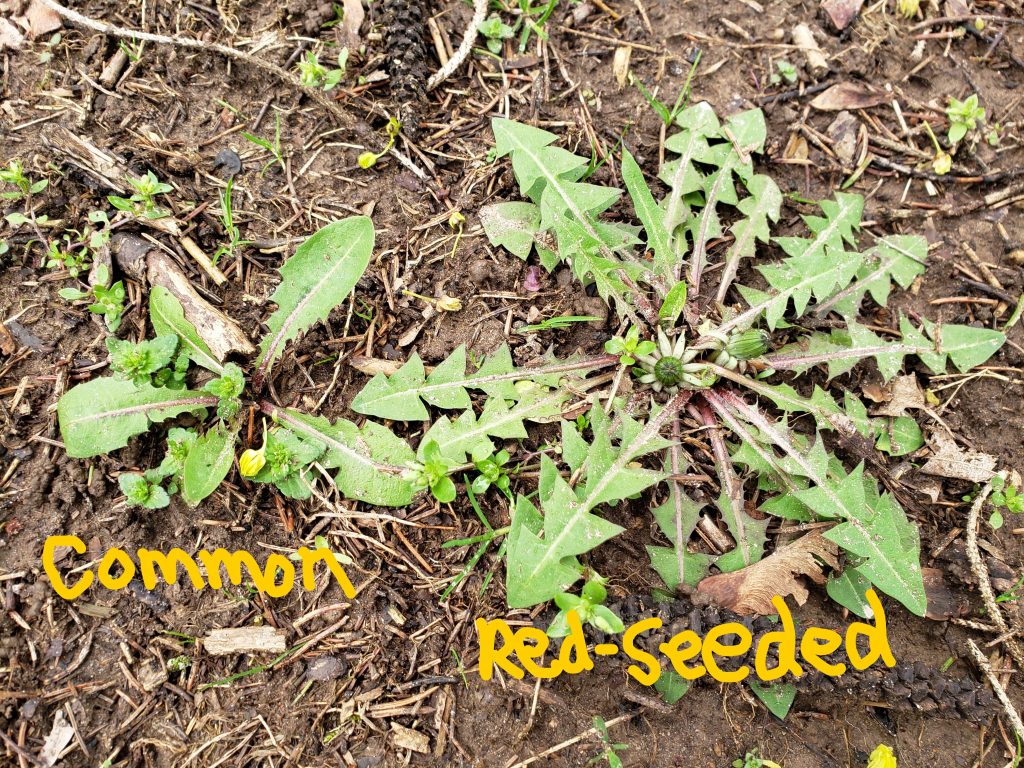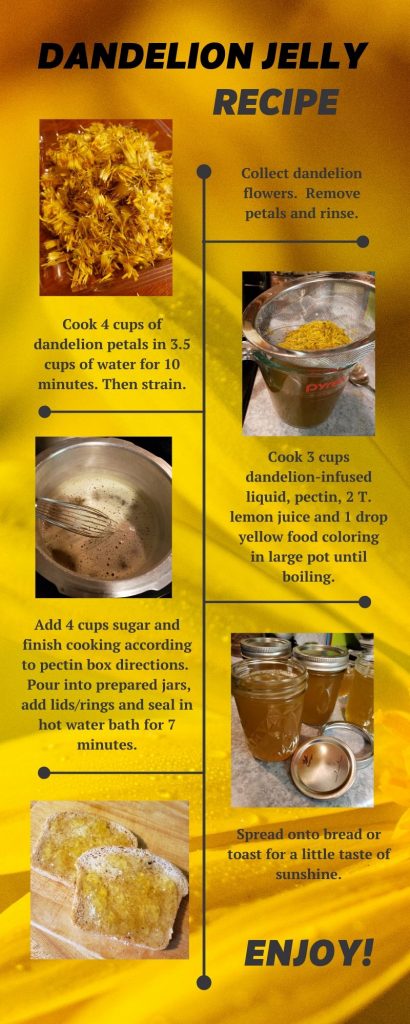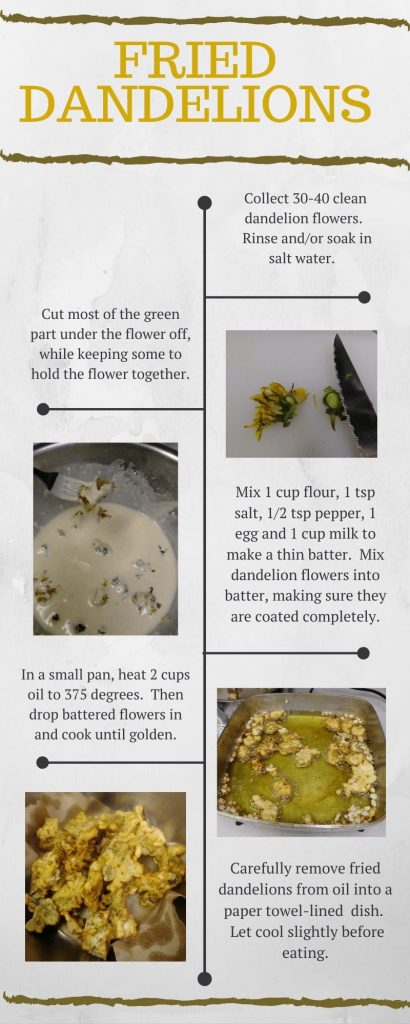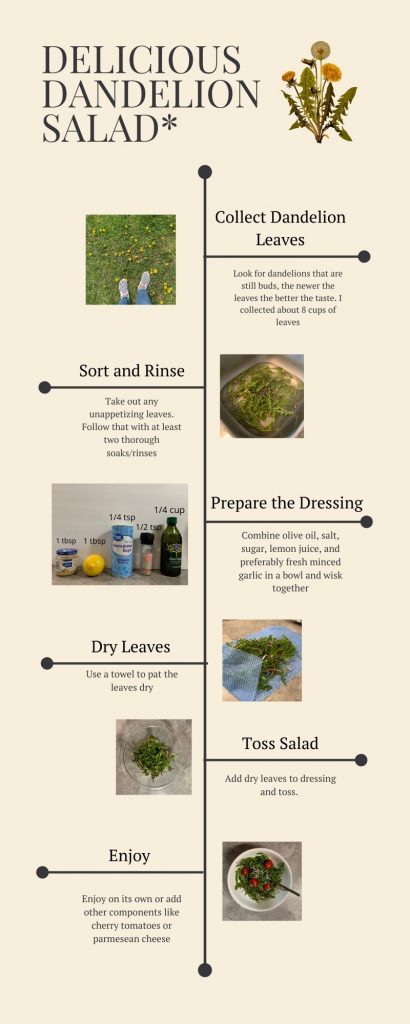Dandelions 101
Dandelions were brought to North America in the early 17th century as a very beneficial, medicinal herb. It was also something that was familiar to the settlers in a foreign land and was planted in their gardens. By 1672, a botanical survey of New England stated that the dandelion was “well established”.
Their quick spread is due to a few factors:
- Fast growers – it takes as little as 8 weeks for a dandelion to go from seed to seed head.
- Long-lived – a healthy dandelion can live up to 13 years
- Adaptable – they can live in almost any condition
- Seral species – dandelions are hardy plants that thrive in harsh conditions (ex: compacted soil)
- Prolific – they produce 150-200 seeds per flower or 15,000 seeds per plant. Dandelions can grow from the taproot or from new seed spread in the wind.
There are over 100 different species around the world. Here in Elkhart County, we most commonly see the common dandelion (Taraxacum officinale) and the red-seeded dandelion (Taraxacum erythrospermum).

The dandelion was prized for it’s many medicinal and nutritional benefits. Here are just a few of them:
- Medicinal
- kidney ailments & function – a diuretic
- liver & gall bladder function – promotes the flow of bile
- muscle tension
- headaches
- treat warts, corns, moles, pimples, calluses, sores, bee stings and blisters
- Nutritional
- Vitamin A – more than carrots
- Vitamin B varieties
- Vitamin C, E & K
- Calcium
- Potassium
- Iron
- Magnesium
- Fiber
As with any wild plant, always make sure you properly identify the plant, gather it respectfully and remember “everything in moderation”. If seeking medicinal benefits from dandelion, seek professional medical advice before self-treating.
Dandelion Recipes
This spring, the naturalists each picked a dandelion recipe to try. All were delicious and we wanted to share them with you.
A few things to remember before eating or cooking with dandelions:
- make sure you are not gathering too close to the road or in a place where herbicides are used
- always wash before eating/cooking
- get permission if picking on property that does not belong to you
- early spring is the best time to gather. Leaves are less bitter then.






